When Andy and I decided it was time to leave The UK to travel, live and work abroad we had no idea how much it would involve. Previously when travelling, it was just a matter of booking flights, having a rough idea of the destination, packing a bag and jumping on a plane. Fast forward ten or fifteen years and we both had jobs, a mortgage, and were married. With all that has come responsibilities, which meant ALOT of planning went into getting us ready for our big adventure. So after the preparations, I created a checklist for long-term travel or moving overseas.
I’m quite a planner; I like to know what I’m doing and when I’m doing it. I write lists…oh, so many lists. I use them to keep track and cross each thing off when completed. This creates numerous jobs that aren’t actually crucial to the desired outcome. Andy, on the other hand, sticks to the essentials that would be showstoppers if not completed. This meant that Andy was packed and ready to go with just under three weeks to play with, whereas I still had a substantial ‘to-do’ list to conquer.
To be honest it all became a little overwhelming. For a long time, my exit plan consisted of scribbled on post-it notes, scrawled on notepads, rambling word docs, and vast excel spreadsheets. Enough to blow anyone’s mind! After another exhausting weekend sorting things out, I decided enough was enough and it was time to condense my chaotic lists into something more manageable and so my checklist for travelling long-term or moving overseas was born.
Checklist for Long-Term Travel or Moving Overseas
So, ready for when you’ve decided that travelling long-term or living abroad is right for you, you’ll find my new and improved checklist for long-term travel or moving overseas below.
Essentials to Prepare for Long-Term Travel
These are tasks that REALLY HAVE to be done to prepare yourself to up-sticks and leave life as you know it behind to travel long-term or move overseas.
Decide on Funds
Decide how are you going to fund the trip; asking yourself these questions. Do you need to save money to travel or already have savings? Will you have a rental income? Will you need to work when you’re away? If it’s the former, think of ways to top up your savings, such as cutting out unnecessary spending or taking on overtime or an extra job. If it’s the latter think about what you could do to earn a living or supplement your funds whilst away.
Arrange Vaccinations
It’s sensible to find out about your travel vaccinations asap, especially if you haven’t had many before. Some are a series of jabs over several weeks or months; so allow plenty of time and visit your doctor early on in your plans to seek advice.
Check Your Passport
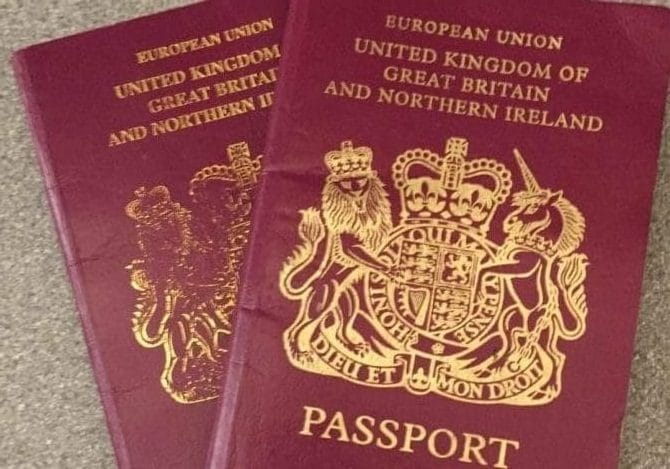
This one is a showstopper if you’re going overseas. If you don’t already have one you’ll need to apply for one. If you do have one you’ll need to check it’s valid for the whole of your trip. Having plenty of empty pages for the myriad of new stamps you’ll collect is also a good move.
Make House Arrangements
If you own your house you’ll need to decide what you’re going to do with it. Will you rent it out or sell it? If you’re going to sell you’ll need to put the wheels in motion early on. It can take months to sell and complete a house sale. If you’re going to rent it out you’ll probably want to instruct a letting agent to manage it. If you rent your home you’ll need to advise your letting agent of the date you’ll be moving out.
Another option is to join Noad Exchange the new membership-based home swap network for remote workers which would enable you to use other members homes and them to use yours. Use our referral code CanWillTravel to get three extra starting credits for your first three nights of stays.
Book Flights
Once you’ve decided where you’re going and when it’s time to start looking into booking flights. It’s worth spending some time researching flights before booking. If you’re flexible with dates, times and airports, you’ll often be able to get good flight deals and saving yourself some money. We mainly used Skyscanner and Kayak to check for the best and cheapest flights.
Buy Travel Insurance
Some people are happy to take the risk and travel without but I would never travel anywhere without travel insurance. Things can and do go wrong, it’s just not worth the risk. By doing your research and shopping around on comparison sites such as Compare The Market you should get a good deal. Be sure to read the small print for any policy before you buy to ensure it covers you for your type of trip and the activities you want to do.
We are big fans of SafetyWing travel insurance which is designed with long-term travellers in mind. It’s set up with recurring monthly payments, like a subscription, which is extremely useful if you don’t know how long you’ll be travelling for.
Since it entered the market SafetyWing has been so successful it has released more products aimed at the growing community of remote workers. There are now three different cover options available each specifically developed for slightly different digital nomad groups. These are Nomad Insurance (the original product offering a general level of cover at a value-for-money price.), Nomad Health (global fully fledged health insurance), and Nomad Remote Health (cover for remote teams).
Apply for Visas
Again this could be a showstopper. You’ll need to research this as some countries grant a visa on arrival (VOA); whilst others require an advance application either online or in-person at an embassy. If you arrive in a country without the relevant visa you won’t be granted entry. That would really put a dampener on proceedings. If you’re planning on working overseas you may also need to apply for a work visa. This is something we need to do when we arrive in Cambodia. Again you’ll need to do your research on this as it varies from country to country.
Hand Your Notice in at Work
You’ll need to decide what you’re going to do regarding your job when you leave. This will depend a lot on your employer, your contract and the length of time you’ll be away. If you’re going to be away for a set period of time your employer may agree to an unpaid career break or sabbatical. If this isn’t possible or your return date is unknown it’s likely you’ll need to hand in your notice. Ensure you give your employer your contracted notice period and keep it polite and professional. Don’t burn any bridges as you may need a reference from them at some point in the future.
Admin
This is the most boring and time-consuming bit but has to be done. What you need to do will vary depending on your residential, marital, and employment status. We’re homeowners, married, employed in the UK and will be working abroad, so I’ll base this on our experience which should cover most scenarios.
Store or Sell Your Belongings
If you have a set return date you may want to store your belongings with family, friends or paid storage. Alternatively, if like us you’re not sure how long you’ll be away for you may decide to just sell everything. Just before we left we had over 200 items listed on eBay and Gumtree, and many others already sold. For us, it was all extra money in the pot which would come in handy.
Sort Finances
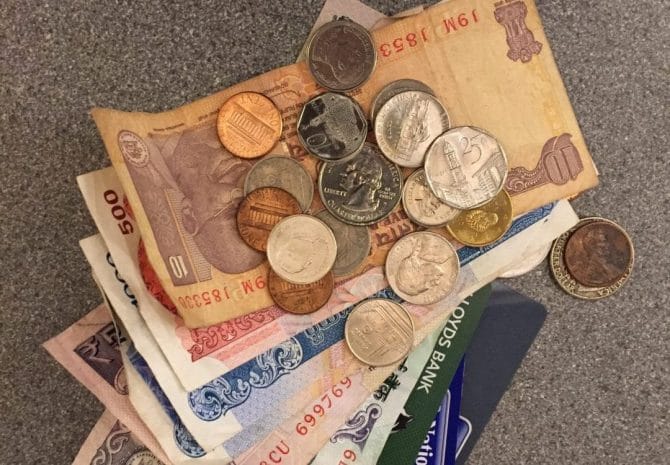
There are many options with regards to travel money. What you decide to do will be dependent on your circumstances and plans. So, for now, I’ve just briefly detailed the various options below:
Buy local currency before you leave. For security reasons though it’s not advisable to walk around with wads of notes. A small amount is handy though for emergencies. It’s a good idea to check out the exchange rates of various Bureau de Changes so you get the best rate. Try to avoid leaving this until getting to the airport as the rates are usually worse than elsewhere.
Debit cards can be used to withdraw cash from ATMs and pay for purchases. Be mindful though that foreign exchange and cash withdrawal charges may apply from both your bank and the bank abroad whose ATM you use. It’s better to open a bank account with no or low international charges such as HSBC (Worldwide).
Online banks such as Starling (only offered to those with a UK address) and money service providers such as Wise (formerly Transferwise) also offer debit cards with no international transaction fees. We have both of these and they are our preferred options for both ATM withdrawals, overseas debit card payments and money transfers.
Credit cards can also be used to both make cash withdrawals and purchases. Although unless you can find one with no or low fees; I’d suggest only using them in emergencies. Also, be sure to pay the balance in full each month to avoid interest charges.
Internet banking is vital to help manage your travel money and help keep track of spending. Don’t forget your card reader for this, if your bank requires this.
Local bank accounts can be a good option if like us you’re going to be living and working abroad for any period of time. You can transfer money to it from your normal bank account and withdraw cash from the local bank’s ATM. Again you need to be careful of the transfer fees.
Hedge your bets by taking a selection of debit and credit cards. Small amounts of cash in currencies such as US dollars, British Sterling or Euros are also good to have for emergencies.
Notify your banks you’re travelling, where to and for how long. If you don’t they may freeze your accounts for security reasons when they detect foreign transactions. A real pain if you’re trying to access your money in another country.
Book Accommodation
If you’re going to be on the road for a long time you probably won’t want to book all your accommodation. It can be restrictive and doesn’t allow for much flexibility to change your plans.
Booking your first night in each country though can be a sensible move. More often than not you’ll have had a long tiring, journey, so the last thing you’ll want to be doing is traipsing around a strange place looking for somewhere to spend the night.
Our favourite sites for accommodation bargains are Booking.com and Vrbo, and we use TripAdvisor to check reviews before booking.
Another option for accommodation, especially if you like to ‘slow travel’ or are a digital nomad is to become a housesitter and look after people’s houses and pets whilst they’re away.
Organise Travel Documentation
Ensure you’ve printed copies of all travel documentation such as flight and accommodation confirmations. We also like to email them to ourselves and save them in a folder so they can easily be found should the printouts go astray.
Backup Important Documents
Scan your passport, visas, driver’s license and any other important documents such as your TEFL course certificates. It’s also a good idea to email them to yourself, save them and also to print a copy to keep in a separate place from the original. If you manage to lose your original documents, the scanned copies can be used to help sort out replacements, making the process much easier.
Non-essentials to Prepare for Long-Term Travel
To finish off here are a few things that won’t halt your plans if you don’t do them; but which may make things smoother and more enjoyable for you.
Create an Itinerary
This is subjective and a matter of personal choice. Some like to know what they’re going to be doing and when, every step of the way, whilst others prefer to wing it. The latter is much more doable if you’ve not got any time restrictions.
Research Employment Opportunities
This is only relevant if you’ll be working whilst abroad. Having an idea in advance of what you might like to do could give you the chance to gain a new qualification or brush up on skills that may help you gain employment.
Sort Out Gadgets
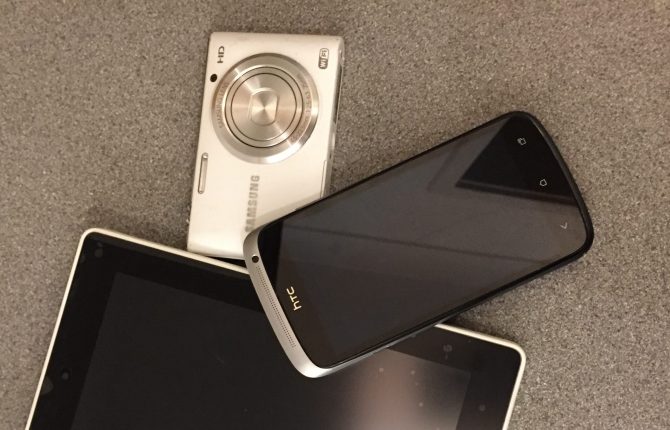
There are so many options here. Phones, tablets, laptops, cameras, go pros, video cameras, kindles etc. What you take will vary from person to person and is likely to depend on what you’ll be doing. Don’t forget chargers, battery packs, and storage too. All the tech in the world won’t be much good if you can’t charge your gadgets or run out of storage for photos etc.
Unlock Your Phone
Speak to your mobile phone provider and request a network unlock code (NUC). This will allow you to buy a cheap local sim card in the countries you visit enabling you to use your phone without racking up eye-watering charges.
| Top Tip: An iPhone doesn’t require an actual NUC code. Just request the NUC, wait ten days, then sync your iPhone to iTunes. That’s it you’re all set. |
Organise Music, Reading and Viewing Material
It’s great to have music or something good to read or watch on long journeys. It gives you the chance to unwind and relax. Be sure to have your music, books and films in an easily accessible format for when you need it.
Write a Packing List and Pack
A packing list can be a help or a hindrance. Despite my love of lists, I’ve found I can spend more time on writing a packing list than it would take to pack. Others find it helpful and reassuring and that it helps ensure nothing is forgotten. I find it easier to lay out everything I’d like to take or will need and then whittle it down to a more realistic load. This can often take several iterations of the process.
Throw a Leaving Do
Finally, getting all your family and friends together in one place at the same time to say goodbye is fun, albeit a little sad. It will also free up the rest of your last week or so to concentrate on any last-minute tasks before the ‘big off’.
GET YOUR CHECKLIST FOR LONG-TERM TRAVEL OR MOVING OVERSEAS
Did you find our checklist for long-term travel or moving overseas helpful? If you’ve done something similar is there anything you think we’ve missed?

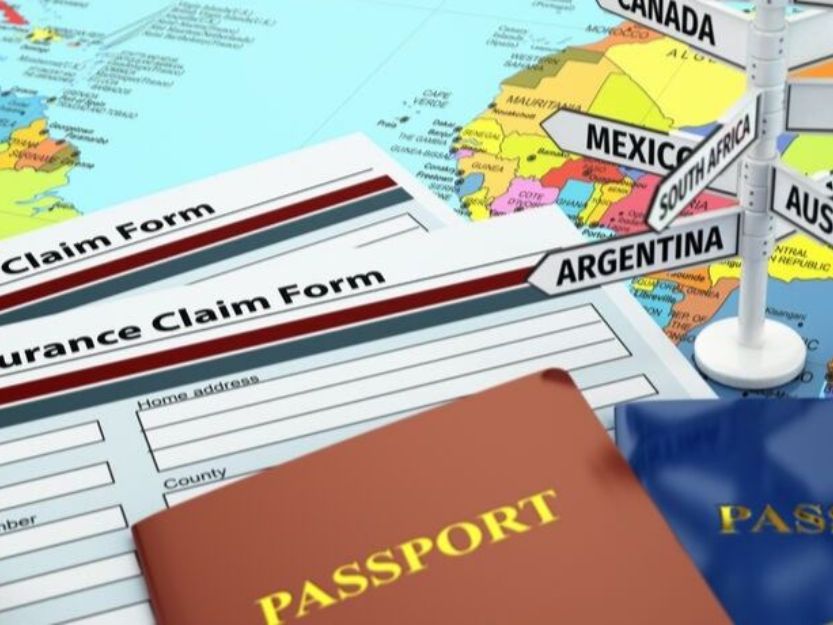
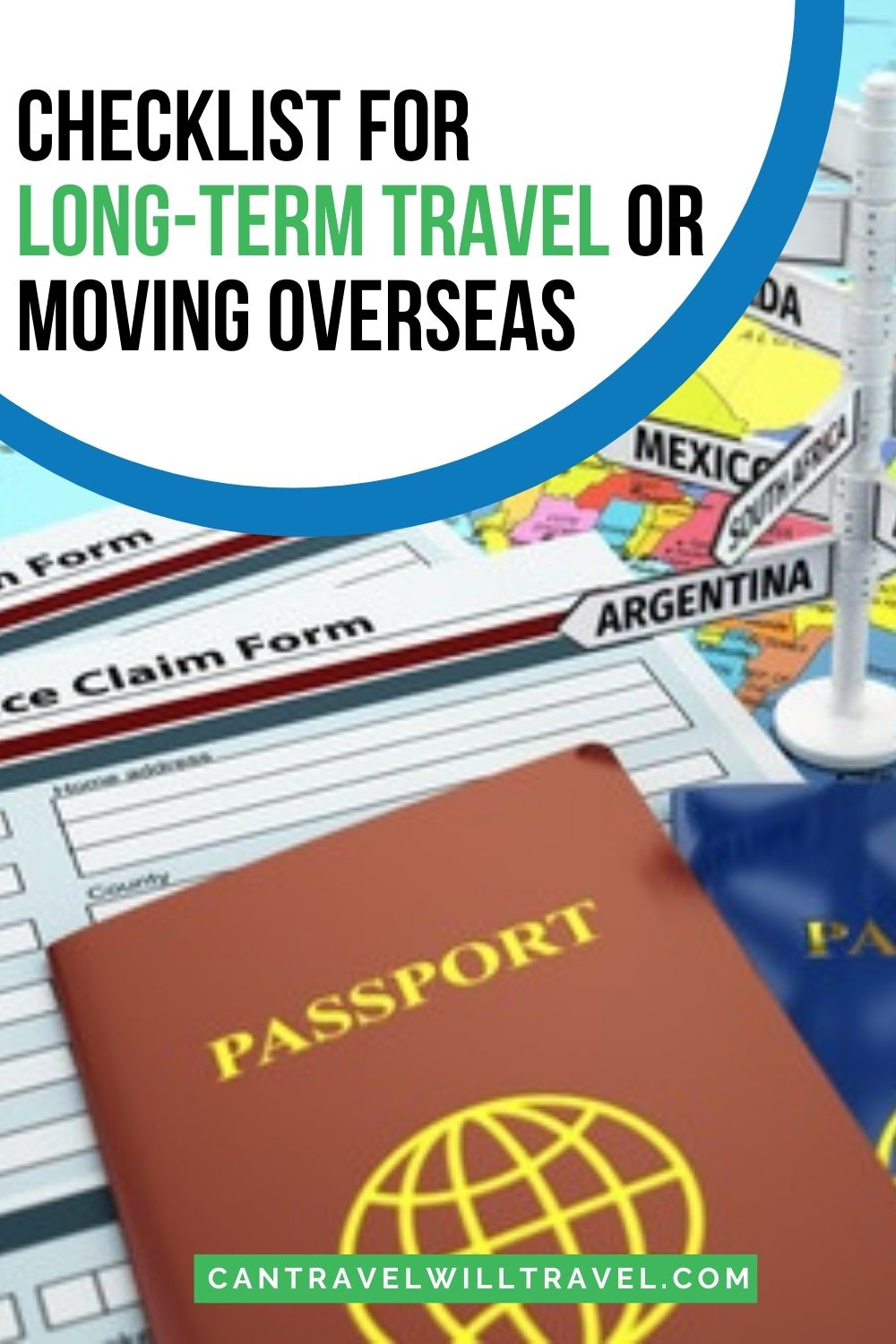
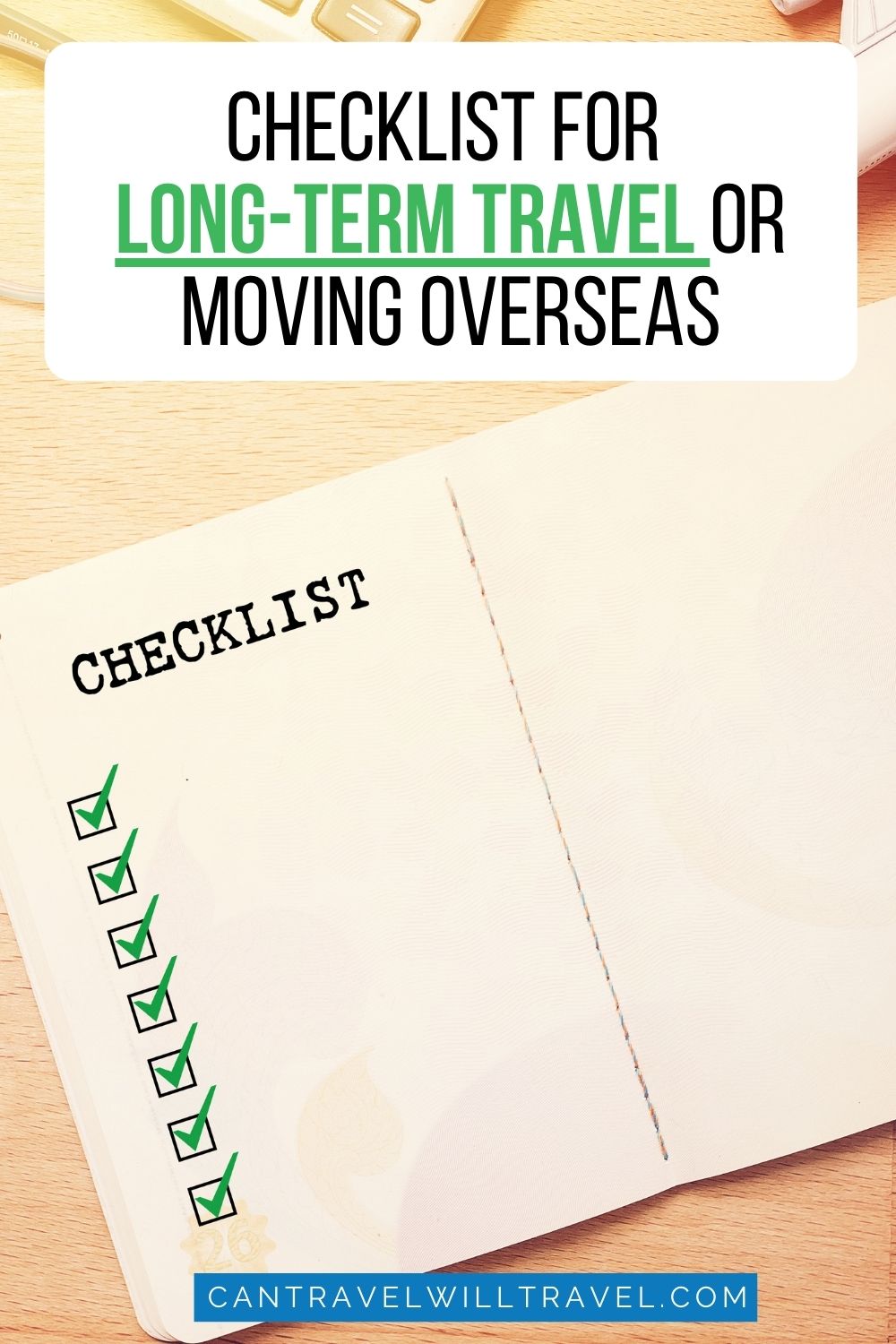
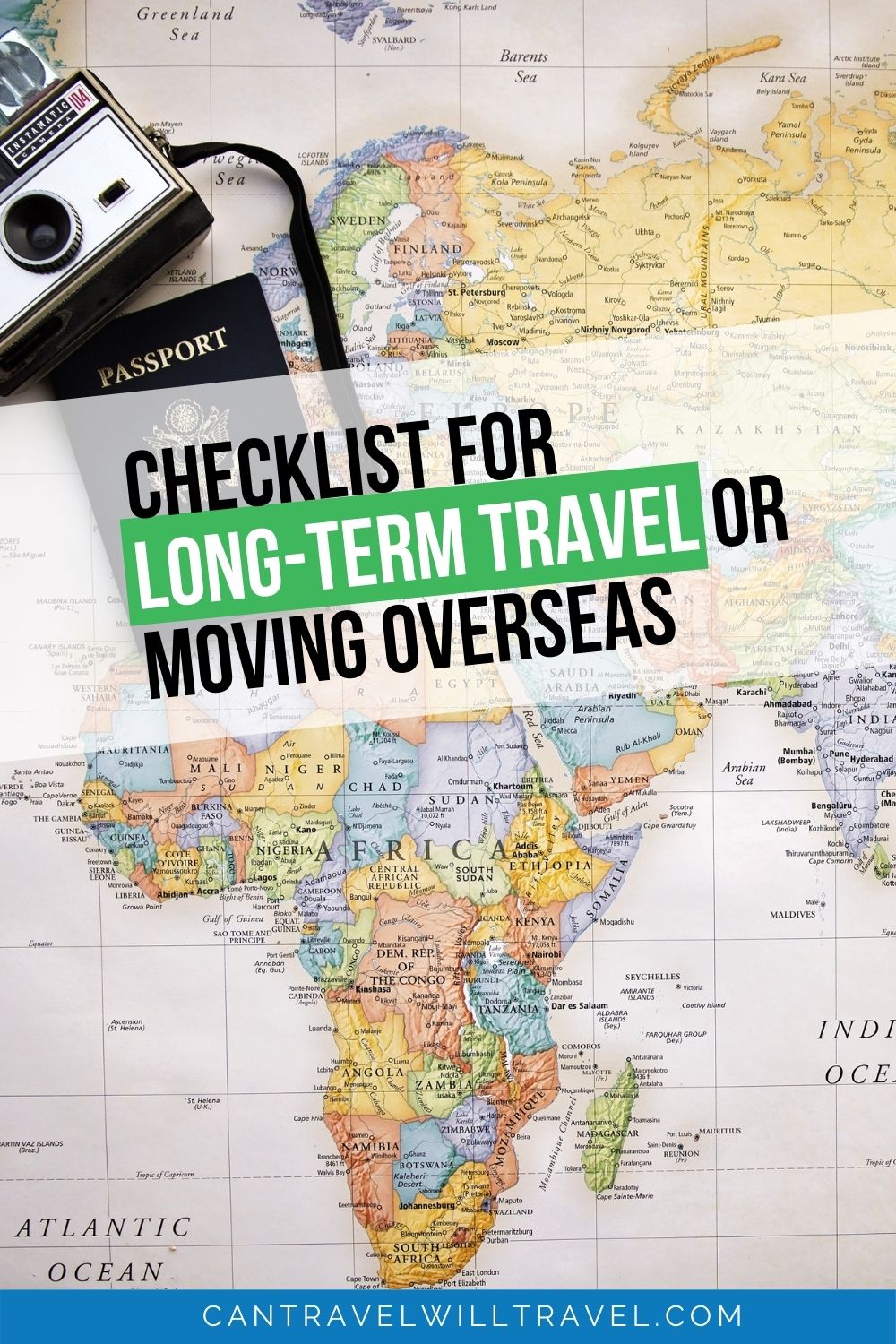
Really useful! I totally agree with your list!
So sorry, I missed your comment – glad you found it useful 🙂
What a great guide! So thorough! I particularly liked the finance section where I think you actually covered everything! thanks!
So sorry, I missed your comment – glad you found it useful 🙂
One of the smartest decisions I took was giving my mother a legal power to be able to deal with any unexpected problems – luckily so because she already settled quite some tricky stuff for me! 🙂
So sorry, I missed your comment – that’s a great idea – well worth considering.
Super useful! Agree with a lot of things on this list, unlocking your phone is so true – I didn’t do this on my first big trip and wish I had!
So sorry, I missed your comment – glad you found it useful 🙂